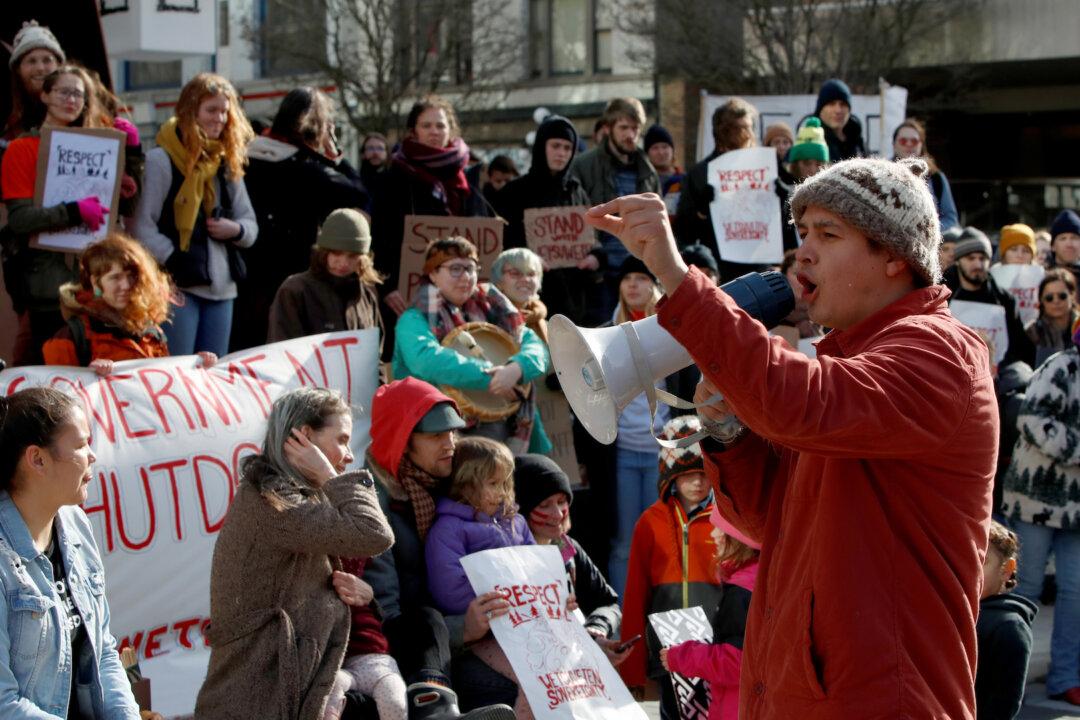OTTAWA—Prime Minister Justin Trudeau promised to redouble reconciliation efforts with Indigenous Peoples on Feb. 18, as he sought to ease tensions over nationwide blockades erected in opposition to a British Columbia pipeline project.
Even as Trudeau called for patience, questions abounded over how he planned to make good on his promise. He faced demands from the Opposition Conservatives to crack down on protesters who have disrupted large parts of the country’s transportation network.





